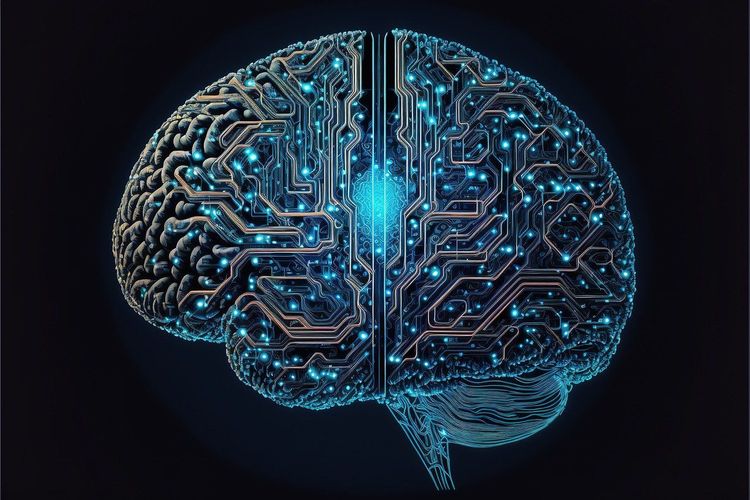As Apple’s Worldwide Developers Conference (WWDC) approaches, speculation about the company’s advancements in artificial intelligence (AI) has surged. Unlike competitors in the smartphone and computing sectors, who have embraced the AI trend enthusiastically, Apple has taken a more reserved stance, raising concerns that it may be falling behind in this rapidly evolving landscape.
However, a recent report sheds light on Apple’s strategic vision for AI, particularly with the anticipated iOS 18 update later this year.
Apple appears to be deeply engaged in the AI field but is taking a distinct path compared to its competitors. According to Bloomberg, “Apple has been developing a large language model, the algorithm that forms the backbone of generative AI features, and indications suggest it will operate entirely on-device.” This means the technology will utilize the iPhone’s processor rather than relying on cloud computing.
There have been ongoing rumors about an internal project referred to as “AppleGPT.” However, it seems Apple has yet to achieve the level of sophistication seen in tools from Google and Microsoft (in collaboration with OpenAI), such as ChatGPT, Copilot, and Gemini. This may explain recent reports suggesting that Apple is considering licensing Gemini AI from Google—similar to what Samsung and OnePlus have done—rather than launching an offering that doesn't meet its esteemed standards. Generative AI tools, even those based on extensive data sets, often encounter significant challenges in their early stages. For example, Google recently faced backlash after a mishap with Gemini AI’s text-to-image functionality. Meanwhile, Meta’s AI is also under scrutiny. Additionally, the debate surrounding copyright laws, fair disclosure, and training transparency is another area Apple is likely keen to navigate carefully.
In contrast to the trend of overhyping AI capabilities, Apple intends to adopt a more measured approach. "Rather than emphasizing chatbots and other generative AI tools, Apple aims to demonstrate how this technology can enhance everyday life," the Bloomberg report highlights.
Since the launch of ChatGPT, the market has witnessed an explosion of AI solutions, from generating realistic imagery and voice cloning to producing photorealistic videos from text and serving as virtual companions. However, a crucial question remains: how beneficial are these flashy tools for the average user in daily scenarios?
Nonetheless, Apple is determined to carve out its unique identity in the AI race. Recently, the company has published several research papers detailing an AI tool called MGIE, which supports tasks like media editing via voice commands. Another paper discusses MM1, a multimodal large language model promising "enhanced in-context learning and multi-image reasoning."
Additionally, we examined another Apple research piece focusing on AI's ability to interpret on-screen content and assist users accordingly. An Apple engineer provided insights about the advancements the company has made compared to competitors like Google's Gemini AI model:
“This is just the beginning. The team is already hard at work on the next generation of models. Huge thanks to everyone that contributed to this project!”
— Brandon McKinzie (@mckbrando) March 15, 2024
Other research papers have addressed the implications of AI on privacy and security, which aligns with Apple’s core values. The on-device method mentioned earlier reinforces this commitment to privacy, ensuring data processed by AI remains on the iPhone rather than being transmitted to a cloud server. This approach also enhances the efficiency of human-AI interactions.
Moreover, Apple possesses the essential hardware required for such innovations. Since 2017, the company has included a neural processing unit (NPU) in its iPhones, functioning as a dedicated AI accelerator. This technology mirrors Google's Tensor Processing Unit (TPU), now adept at running the Gemini model on-device. Notably, Apple has been laying the groundwork for this initiative for some time.
At WWDC 2022, Apple introduced "an open-source reference PyTorch implementation of the Transformer architecture," a foundational technology behind generative AI.
The latest report from Bloomberg indicates that Apple will showcase its AI strategy at WWDC 2024, set to start in June. Could an on-device generative AI model finally elevate Siri’s capabilities, similar to Google’s efforts to enhance Google Assistant? Only time will reveal the answer.







